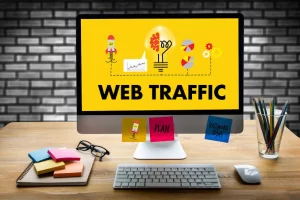ICELANDIC TOURISM INDUSTRY AFFECTED BY VOLCANIC ERUPTIONS

ICELANDIC TOURISM INDUSTRY AFFECTED BY VOLCANIC ERUPTIONS
Iceland has become a sought-after tourist destination in recent years, showing one of the most impressive recoveries in air travel between destinations since the pandemic began. The country’s breathtaking scenery, geothermal wonders, and sustainable tourism approach make it an attractive option for travelers from around the world. However, with increasing global competition and the potential impact of natural events such as earthquakes and volcanic eruptions, Iceland’s tourism industry must adapt to changing priorities and industry dynamics.
In 2022, Iceland was the most successful European destination to recover from the pandemic, with international visitors down 17% compared to 2019. Key markets such as the USA and Germany showed better-than-average results, with visitors falling by only 5% and 3. %, respectively, due to Iceland’s open border policy for vaccinated tourists and the strength of the US dollar.
Tourist arrivals from the U.S. in July and October this year rose from 2019 levels, up 8% and 20%, respectively, compared to the pre-pandemic months. This indicates strong demand from its main source market and an outstanding season.
The recovery of Iceland’s tourism industry depends on natural events.
Along with Iceland’s impressive post-pandemic recovery, the nation has experienced several volcanic eruptions on the Reykjavík Peninsula since the spring of 2021. These events have gained world attention and highlighted Iceland’s unique offerings. Still, they have also sparked concern among potential travelers, echoing memories of the 2010 eruption of the Eyjafjallajökull volcano, which caused significant travel disruptions globally. Although recent eruptions have been mostly harmless, the potential for disruption has discouraged some visitors.
After analyzing the weekly global flight search trends for trips to Iceland, it is clear that events such as volcanic eruptions and associated natural events significantly affect search patterns. Typically, earthquake swarms precede volcanic eruptions, which are often widely reported in the media. Events like this may deter tourists from planning a trip to Iceland while the volcanic activity is ongoing.
Iceland’s tourism industry hit by volcanic eruption
Towards the end of 2023, when seismic and volcanic activity approached the town of Grindavik and the Blue Lagoon, a 3% drop in searches was observed during the week of the first eruption in November. A further decline of 18 percent was recorded on 18 December, coinciding with the start of a new eruption that forced the evacuation of Grindavik.
Positive number of tourist arrivals
International arrivals to Iceland were positive in 2023, with a decrease of only 1% compared to 2019. However, this recovery suffered some setbacks due to various volcanic events. International arrivals declined in August due to the eruption of Litli-Hrútur in July and the earthquake in November. From September to November, there was a recovery, but another decline occurred in December due to earthquake swarms and the temporary closure of the Blue Lagoon. August and December are key months for Iceland’s seasonal tourism, and the drop in arrivals affected the country’s overall performance in 2023.
The Icelandic authority responded.
The Icelandic government has taken action to address the decline in travel interest due to recent events. They have established better safety monitoring and communication systems and invested in infrastructure development to increase access to popular tourist destinations in preparation for natural events. However, media coverage still heavily influences travel interest.
This decline in interest is expected to continue into 2024 and highlights the connection between Iceland’s natural phenomena and its status as a travel destination. Iceland’s tourism industry needs to monitor data and make informed decisions. Real-time travel data is now critical for Icelandic authorities and businesses to address misinformation and strategize in rapidly changing market conditions. This helps in reducing potential challenges due to adverse events and feedback.




